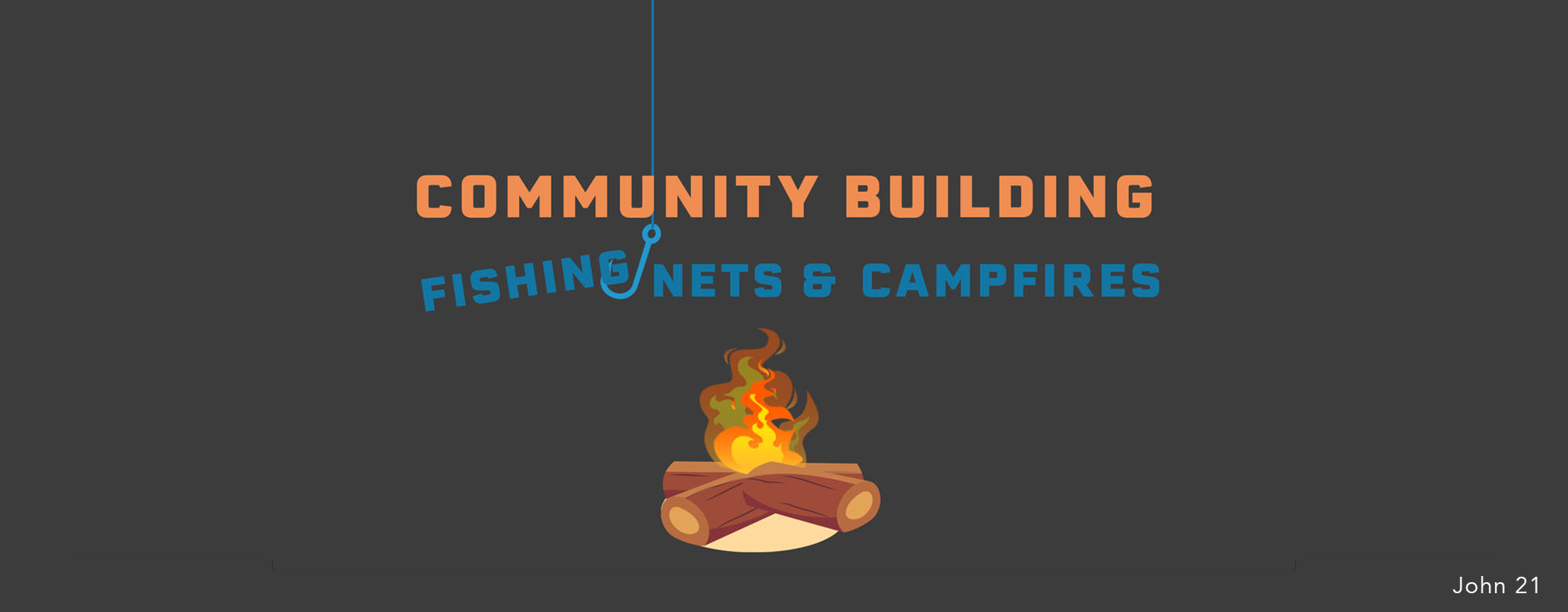

Simon Peter said, “I’m going fishing.” “We’ll come, too,” they all said. So they went out in the boat, but they caught nothing all night. At dawn Jesus was standing on the beach, but the disciples couldn’t see who he was. He called out, “Fellows, have you caught any fish?”… “Throw out your net on the right-hand side of the boat, and you’ll get some!” So they did, and they couldn’t haul in the net because there were so many fish in it.
Then the disciple Jesus loved said to Peter, “It’s the Lord!” When Simon Peter heard that it was the Lord, he put on his tunic (for he had stripped for work), jumped into the water, and headed to shore. The others stayed with the boat and pulled the loaded net to the shore, for they were only about a hundred yards from shore.
When they got there, they found breakfast waiting for them—fish cooking over a charcoal fire, and some bread. (John 21:1-13)
This picture towards the end of John’s gospel is one of my favourites. It seems appropriate to end a record of Jesus’ mission with such an earthy image. It is almost ironic that John’s gospel, which is structured around theological themes, ends with such an everyday picture. [1] Here we realise that Jesus’ ministry was about divine hospitality rather than believing a set of values. It is about heeding Jesus’ calling on our lives to be fishers of people and to gathering with his disciples around his campfire.
“I’m going fishing.”
When the disciples went fishing, did they abandon their responsibilities? On the surface, a cynical reading could suggest this, but what if we dig a little deeper? (1) The disciples remained together. Jesus was the glue that held their relationship together, and he continued to do so here. (2) After his resurrection, Jesus told his disciples that he would meet them in Galilee (Mk 14:28; 16:7). (3) Because several of the disciples’ ministries began on the shores of Galilee, it would have been an important spot for them to return to reflect on their current situation. This is something I can personally relate to:
I was hiking with a friend in the rugged Glyder mountains during my first two weeks at the University of Wales Bangor in Snowdonia when he stumbled of a cliff and fell a significant distance. Thankfully, despite his life-threatening injuries and a difficult rescue, my friend survived. For both of us, it was a life-changing event. It was difficult to recover from this experience, especially in terms of maintaining my passion for the outdoors. A year after the date of the accident, my friend and I returned to the spot where it all began. I found that this was an essential aspect of the healing process for me. It was not about escaping the events; rather, it was about allowing things to settle so that we could move ahead in a positive manner. Around 20 years later today, not only do I instruct the future generation of outdoor adventurers but I am also a member of the mountain rescue team.
Rather than giving up their responsibilities, perhaps, the disciples were creating space to process the recent life-changing events and to wait upon their Lord. Perhaps they were reminiscing about all their experiences with Jesus, such as when he walked on water, calmed storms, and fed over 5,000 people, as they kept themselves occupied.
“They caught nothing”
We do not know how the disciples felt that they caught nothing; what matters is that they caught in abundance when they listened to and obeyed Jesus’ voice. They recognised him for who he truly is because they trusted his voice. It seems, they were at the right place at the right moment to receive Jesus’ teachings. Waiting does not always imply sitting around doing nothing, but rather getting on with the necessary tasks while still preparing to receive Jesus.
Fishers of people
Jesus had a mission for his disciples. Like any good teacher, Jesus laid out his mission when approximately three years earlier he called his disciples and said ‘Come follow me, and I will make you fishers of people. (Mark 1:17)’ When Jesus first met Simon, the fisherman, he instructed him to recast his net. When Simon pulled the nets in they were so full that they began to tear. Over the next three years Jesus prepared his disciples for their mission. And so, three years later, after Jesus’ resurrection, when the disciples recast the net it was so full they could not haul it in, but despite this their nets did not break. There is a valuable truth for us here: only Jesus can prepare us to be fishers of people, so that when we cast nets in His name, He will not lose a single catch.
Jesus said: “I am the good shepherd; I know my own sheep, and they know me, just as my Father knows me and I know the Father. So I sacrifice my life for the sheep. I have other sheep, too, that are not in this sheepfold. I must bring them also. They will listen to my voice, and there will be one flock with one shepherd. (John 10:14-16)
We’ll continue to look at this passage next month as we discuss Jesus receiving his disciples around the campfire.
Links
Dunfermline West Baptist Church
Chalmers Street, Dunfermline
KY12 8DG